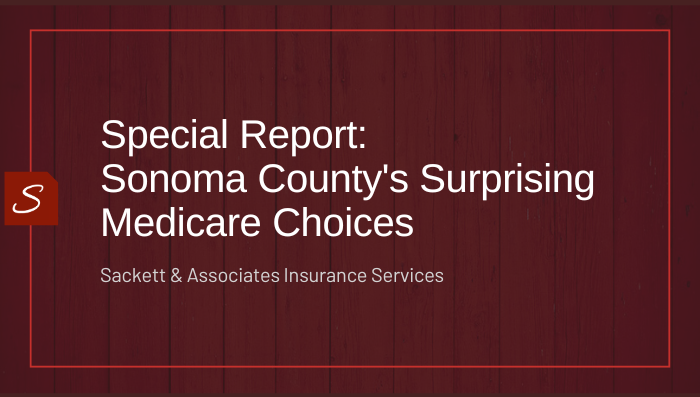Share This Post
Choosing the Right Health Insurance Plan in 2025
Finding the right health insurance plan for your life situation is one of the most important financial and personal decisions you can make. Whether you're self-employed, managing a growing business, or simply exploring your coverage options, understanding the difference between group and individual health insurance can help you find a plan that fits your lifestyle, health needs, and budget.
Pros and Cons of Group vs. Individual Health Insurance in 2025
When evaluating health insurance options, most people find themselves choosing between group and individual plans. Each comes with its own set of advantages and drawbacks that can significantly impact your finances, flexibility, and access to care.
The following sections break down the pros and cons of each type of health insurance to help you determine which one aligns best with your specific needs and circumstances.
Group Health Insurance Pros
Group health insurance is a popular option for many employees and their families, often included as part of a benefits package at work. It provides a variety of advantages that make it an appealing choice for those looking for affordable and comprehensive coverage.
- Lower Monthly Premiums: One of the biggest advantages is cost-sharing. Employers typically cover a significant portion of the monthly premium, reducing out-of-pocket costs for employees.
- Comprehensive Coverage Options: Group plans often offer a broad network of providers and may include extra benefits such as dental, vision, mental health support, wellness programs, and even gym memberships.
- Simplified Enrollment: Since the employer manages the plan options and enrollment, the process is usually straightforward. There's also no need to shop around or navigate insurance marketplaces.
Group Health Insurance Cons
While group health insurance has its advantages, there are also certain drawbacks to consider before making your decision.
- Limited Customization: Employers choose the plan (or a small selection of plans) based on the needs of the overall workforce. You may not be able to personalize your plan to suit specific health conditions or preferences.
- Provider Network Restrictions: Group plans can limit your access to certain doctors or specialists. Depending on where you live, your choices may be narrower than expected.
- Coverage Loss Upon Leaving a Job: If you change or lose your job, your coverage usually ends, leaving you to either pay out of pocket or seek new insurance immediately.
Group health insurance can be an affordable and convenient solution if your employer offers it. However, if flexibility and long-term stability are priorities, you may want to evaluate other options.
Individual Health Insurance Pros
Individual health insurance is designed for people who don’t receive coverage through an employer or who need a plan that best fits their unique needs. Individual plans offer several advantages:
- Flexibility and Control: You choose the provider, plan type, and coverage level. This is particularly helpful if you have specific medical needs or want more control over your care.
- Portability: Individual plans follow you regardless of employment status. This is ideal for independent contractors, those in career transitions, or retirees under 65.
- Subsidy Opportunities: If you purchase coverage through the federal or state health insurance marketplace, you may qualify for subsidies that reduce your monthly premium and other costs.
Individual Health Insurance Cons
Despite its flexibility, individual health insurance also has some disadvantages. Here are some factors to consider before opting for an individual plan:
- Higher Costs: Without an employer helping cover premiums, your monthly payments can be substantially higher. Deductibles and coinsurance may also be less favorable compared to group plans.
- Fewer Plan Options in Some Areas: In regions with limited insurance providers, your choices for individual coverage may be restricted, especially if you want a broad provider network.
- Preexisting Condition Concerns: While plans compliant with the Affordable Care Act (ACA) cover preexisting conditions, non-ACA-compliant plans may include exclusions or increased premiums.
If flexibility and portability are important to you, an individual health plan can be a strong choice. Just be sure to assess the total cost and available options in your area before committing.
Group vs. Individual Health Insurance: Which Costs More?
Cost is often a deciding factor when choosing between group and individual health insurance. Group plans are generally more affordable because the risk is shared among many employees, and employers contribute to premium costs. The larger the group, the lower the average cost per person.
In contrast, individual plans lack this built-in cost-sharing structure. However, marketplace subsidies can make individual coverage surprisingly affordable, especially for those with lower or moderate incomes.
For small business owners, offering group insurance may feel costly upfront, but it can also serve as a strong recruitment and retention tool. Alternatively, some small businesses opt for Health Reimbursement Arrangements, allowing employees to purchase their own plans and get reimbursed for premiums, giving flexibility to both employer and employee.
Which Health Insurance Plan Is Right for You?
There’s no one-size-fits-all answer when it comes to health insurance. By weighing the flexibility, costs, and benefits of each type, you can make an informed decision that supports your health and financial well-being.
Sackett Insurance offers both group and individual health insurance options, with guidance from a team that genuinely cares about your well-being. Contact us today to explore which health insurance plan is the better choice for your unique situation.
Share This Post
Taking The Pain Out Of Health Insurance
We make it simple to find the right insurance plans for your needs
In just a few quick steps.





